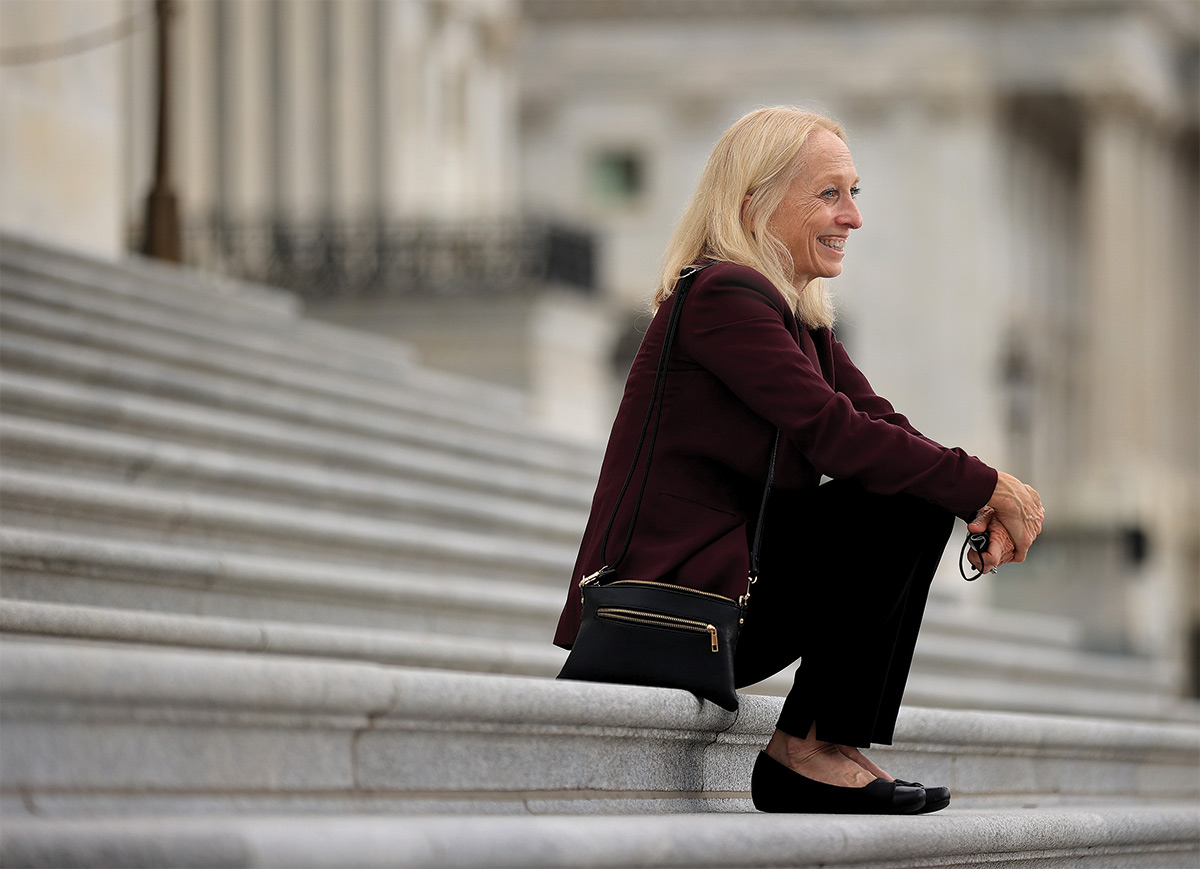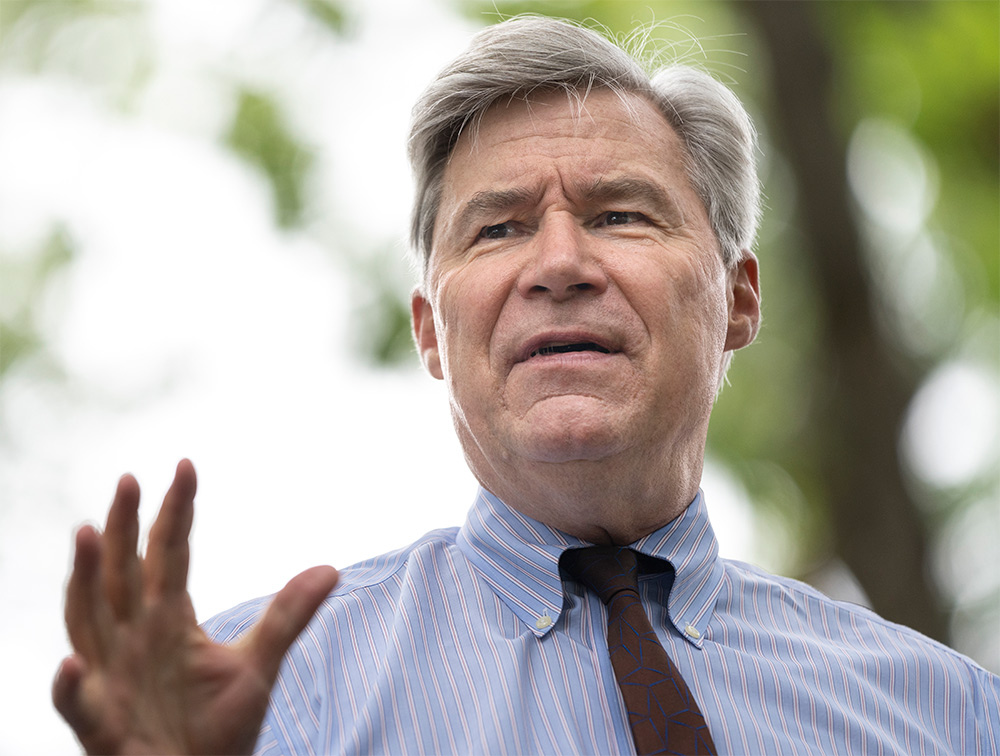
 U.S. Rep. Mary Gay Scanlon L’84 discussed her push to better regulate Big Tech during a privacy symposium sponsored by local chapters of the American Constitution Society and the Center for Technology, Innovation and Competition.
U.S. Rep. Mary Gay Scanlon L’84 discussed her push to better regulate Big Tech during a privacy symposium sponsored by local chapters of the American Constitution Society and the Center for Technology, Innovation and Competition.Congresswoman Mary Gay Scanlon L’84 and Senator Sheldon Whitehouse On How to Curb Big Tech and Big Money
In the Information Age, data has emerged as the coin of the realm; as a result, control of and access to this knowledge has become a hotly contested issue in Washington, D.C.
“We’re playing catch-up as we try to address the critical privacy concerns our new digital age has wrought,” Scanlon cautioned her audience.
She delivered her remarks during the morning keynote address of “Privacy & Law in the Modern Age,” a symposium sponsored by local college chapters of the American Constitution Society (ACS) and the Center for Technology, Innovation and Competition (CTIC).
In addition to Penn Carey Law, which served as host, ACS organizations affiliated with the law schools of Drexel, Temple, Rutgers, and Villanova participated in the event. Jess Zalph L’23, Programming Director for the Penn Carey Law ACS group, played an instrumental role in managing the gathering’s logistics.
The daylong program also featured Sen. Sheldon Whitehouse (D-RI) as the headliner for the afternoon session. The addresses from the Capitol Hill visitors bridged a series of panel discussions built around topics that included Reproductive Justice, Voter Privacy & Election Integrity, and Medical Autonomy and COVID-19 Mandates, among others.
Scanlon noted that while legislators have historically been slow to deploy regulatory measures in response to the creeping influence of “Big Tech,” she and her colleagues on the House Subcommittee on Antitrust, Commercial, and Administrative Law have proposed legislation to curb large tech companies and increase competition in the marketplace. With market pressure reintroduced, the Congresswoman hopes that Americans will have more choices among service providers who value privacy, in turn pushing the legacy companies to reform.
Given the large bipartisan appetite to address this challenge, Scanlon predicted that corrective legislation would be advanced shortly. Nevertheless, she advised that comprehensive digital privacy rights laws were still badly needed, and the effort would have to expand beyond the United States.
“The Internet doesn’t have borders, and with tech companies operating globally, the only way to solve these privacy concerns is to work as an international community,” Scanlon said.

“In my political sphere, it operates as a way to disable citizens and encourage a slimier politics, a more special interest-based politics. And in the court, it has facilitated the capture of the Supreme Court and other courts.”
The Court’s 2010 ruling in Citizens United v. Federal Election Commission, Whitehouse observed, opened the floodgates for the infusion of special interest money in elections and judicial appointments. Moreover, the 2021 decision in Americans for Prosperity v. Bonta has curtailed the ability of states to compel disclosure of donors to nonprofit organizations.
Nevertheless, Whitehouse continues to champion the DISCLOSE Act to pierce the veil of anonymity under which special interest groups operate. The legislation would compel reporting from donors who gave more than $10,000 in an election cycle or a judicial confirmation battle.
“In drafting the bill, we made really sure that no matter how many screens, no matter how many shell corporations, no matter how many donors’ trusts, no matter how many ‘Russian nesting dolls’ they erected, we could drill through all of it,” he remarked.
For the senator, the root of the problem is the treatment of money as speech. He believes that the infusion of cash in the post-Citizens United environment has promoted corruption and bullying. As an example, he offered the stalled efforts to act on climate change, which he claimed had enjoyed some measure of bipartisan momentum prior to the 2010 ruling. The resulting pressure from fossil fuel companies operating through special interest shell corporations caused Republicans to back away from the issue, Whitehouse contended.
“You pull that Citizens United dark money cork out of the bottle in climate legislation, and things will begin to move.”
Ultimately, Whitehouse framed his efforts as an important step to empower Americans with the information they need to fulfill their duties in a democratic society. Armed with a better understanding of the identity of the messengers, the senator believes that citizens will develop a more nuanced view of the messages being delivered to them.
“At the heart of all of this, we have to have confidence and trust in the American people, in the American citizenry.”